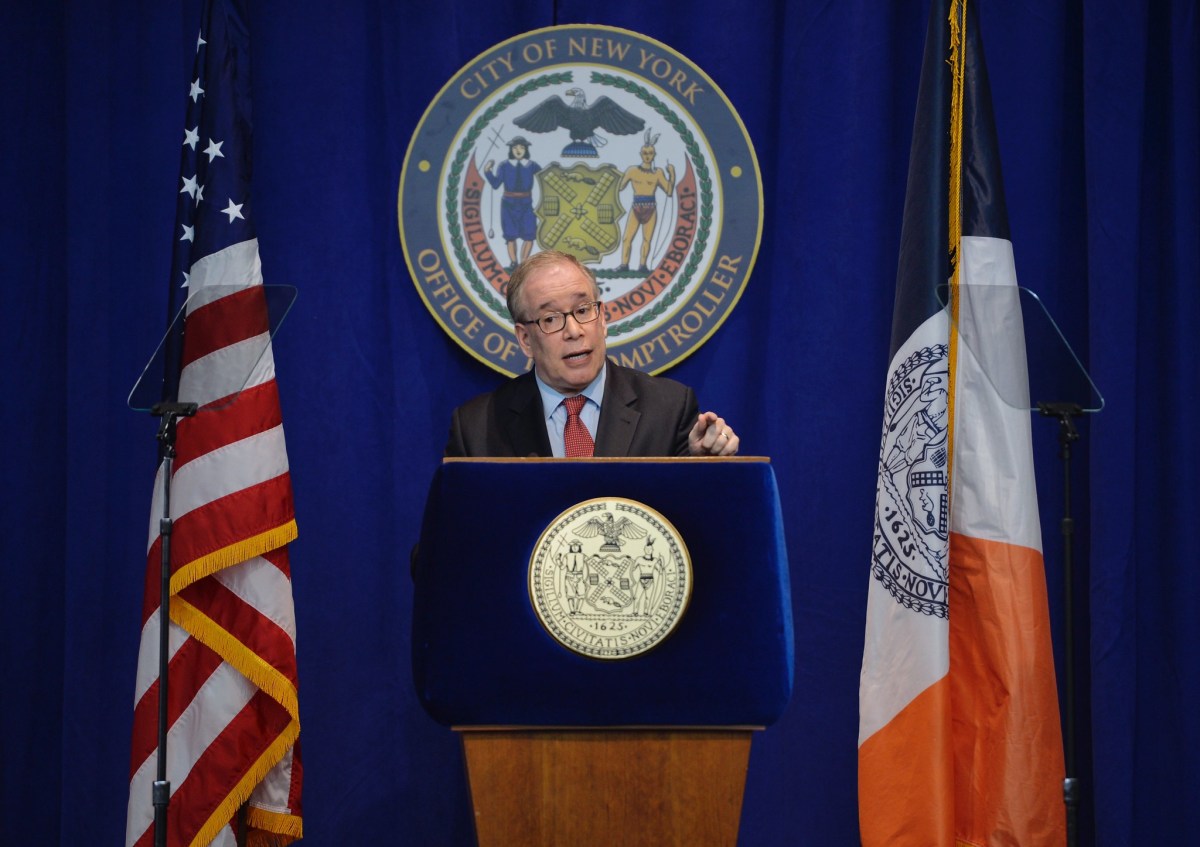New York City Comptroller and 2021 mayoral candidate Scott Stringer is calling on the city to find ways to set aside $1.4 billion in savings to ensure vital services like hospitals, schools, homeless and city police continue to run smoothly during the coronavirus outbreak.
The comptroller’s office predicts that the city will lose $3.2 billion in tax revenue over the next six months given the restrictions on restaurants, hotels and travel.
On Monday, Governor Andrew Cuomo banned gatherings of over 50 people in the state, restricted all bars and restaurants to deliveries and take-out and announced that gyms, movie theaters and casinos must close their doors indefinitely beginning at 8 p.m. The same restrictions on public life were also announced by New Jersey Governor Phil Murphy and Connecticut Governor Ned Lamont.
Essential businesses like gas stations, grocery stores and pharmacies remain open.
The comptroller conservatively predicted that hotels will only use 20 percent of their rooms, restaurant sales will decline by 80 percent, real estate revenue will drop by 20 percent and retail sales will also decline by 80 percent over the next year.
The effect of coronavirus on the city’s economy “could be much broader and deeper than the aftermath of 9/11 or the 2008 recession” a spokesperson from the New York City Independent Budget Office said.
In order to help create the savings fund, comptroller is calling on the state to defer sales tax payments from hotels, restaurants and small retail stores due by March 20, and for the city’s Department of Small Business Services to extend its assistance program to include nonprofits, especially those in the arts and culture sector.
Last week, Mayor de Blasio announced that the city would offer loans to up to $75,000 to businesses with fewer than 100 employees if they can document a 25 percent loss in customers as a result of the coronavirus.
The comptroller is calling on the city to further help businesses by doing away with small business fines and fees and to consider other measures like deferring tax payments.



































